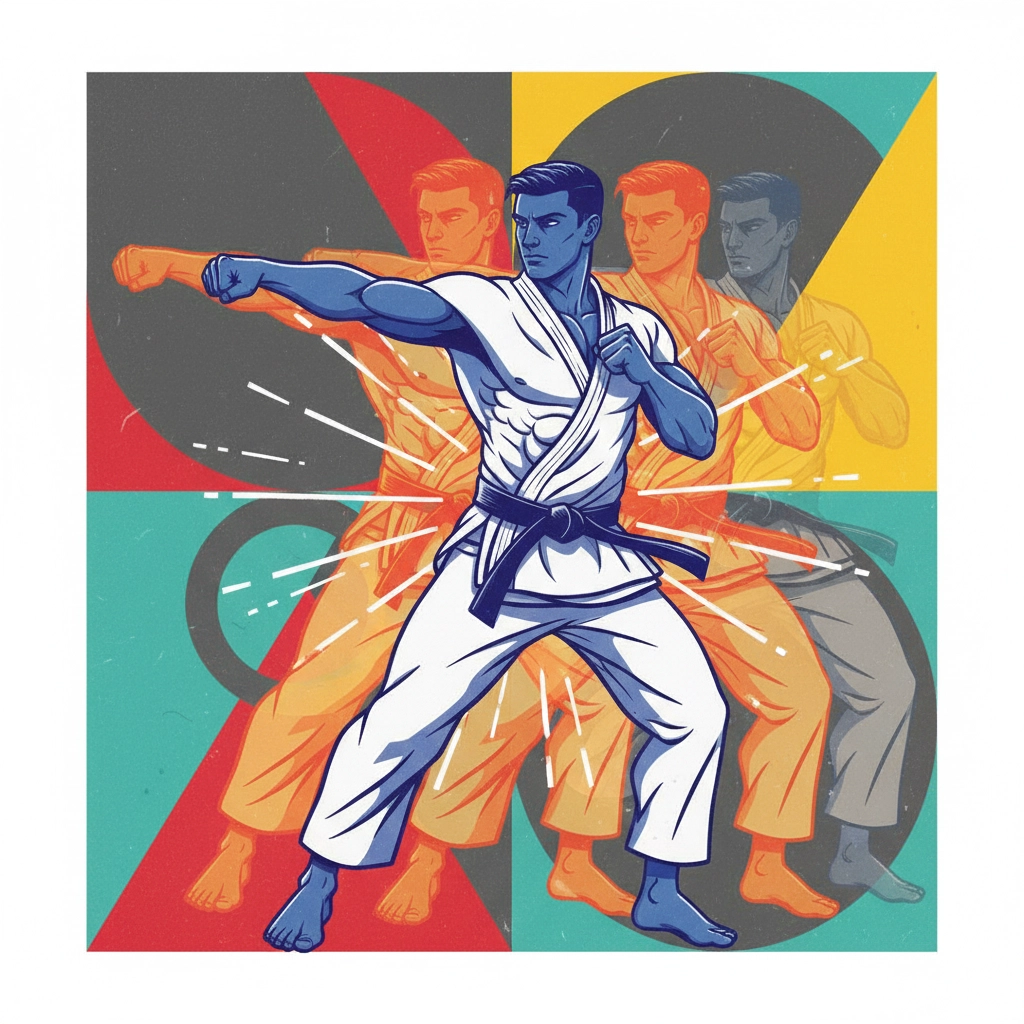Hey everyone! If you've been around martial arts lately, you may have noticed something interesting happening. Increasingly, people are discussing mindfulness in training. It's not just the yoga crowd anymore – serious fighters, traditional martial artists, and even MMA competitors are now joining in.
So what's the big deal? Why is mindfulness suddenly everywhere in our community? And more importantly, should you care?
The short answer is yes, you absolutely should care. Here's why this trend is gaining momentum and how it can transform your martial arts journey.
The Performance Game-Changer
Let's start with what matters most to many of us – improving at what we do. Mindfulness isn't some fluffy concept that belongs only in meditation retreats. It's a legitimate performance enhancer.
Think about your last sparring session. How many times did your mind wander? Maybe you were thinking about that technique you messed up five minutes ago, or worrying about whether you'd get tagged by that fast combo your partner keeps throwing. Every second your mind is elsewhere is a second you're not fully present for what's happening right now.
When you're mindful during training, you become hyper-aware of everything around you. Your opponent's breathing pattern. The slight shift in their weight before they throw a kick. The way their eyes telegraph their next move. This isn't mystical stuff – it's a practical advantage that comes from being completely tuned in.

Mental Health Benefits That Actually Matter
Here's something we don't talk about enough in martial arts: the mental game is enormous, and it goes way beyond just "staying focused." Training can be stressful. Competition can be overwhelming. And let's be honest – life outside the dojo can be pretty intense too.
Mindfulness provides you with tools to handle all of that more effectively. When you practice staying present during forms or drilling techniques, you're literally training your brain to remain calm under pressure. That racing heart before a tournament? Are you anxious about testing for your next belt? Mindfulness helps you work with those feelings instead of fighting against them.
I've seen students who used to get overwhelmed entirely during sparring become much more composed once they started incorporating mindful breathing into their training routine. They're still working just as hard, but they're not burning mental energy on worry and stress.
Competition Advantages You Can't Ignore
If you compete, this is where mindfulness really shines. Competition is as much mental as it is physical, and the fighters who understand this have a serious edge.
Picture this: You're in the middle of a match, and you just got scored on. Your old mindset might have you spiraling – "I'm behind, I need to catch up, what if I lose, everyone's watching..." But with mindfulness training, you can acknowledge that thought, let it go, and get right back to the present moment.
That ability to reset quickly is gold in competition. Instead of carrying that baggage into the following exchange, you're fresh and focused on what's happening right now. You're not fighting your last mistake – you're fighting your opponent.

Building Stronger Training Communities
Here's something cool that's happening in schools that embrace mindfulness: the community gets stronger. When everyone is more present and aware during training, the whole vibe changes.
Students become better training partners because they're more tuned in to what's happening. They pick up on when someone needs to dial it back, or when they can push a little harder. Instructors can read their classes better and adjust on the fly.
There's also something to be said for the shared experience of working on mindfulness together. It creates a different kind of bond between training partners – you're not just working on techniques, you're growing as people.
Real Examples from Real Training
Let me give you some concrete examples of how this plays out in actual training:
During forms: Instead of just going through the motions, you focus entirely on each movement. How does your weight shift? What muscles are engaging? This deeper awareness makes your forms more precise and helps you better understand the applications.
In drilling: When you're working on that same technique for the twentieth time, mindfulness keeps it fresh. Each rep becomes an opportunity to notice something new – maybe how your partner moves differently when tired, or how your own balance changes as you speed up.
During meditation or breathing exercises, Many schools are adding short mindfulness sessions to class. Even five minutes of focused breathing can completely change how students approach the rest of the training.

The Science Backs It Up
We're not just talking about feel-good benefits here. Mindfulness training actually changes your brain in ways that directly help with martial arts. Better focus, improved stress response, enhanced body awareness – these aren't just claims, they're measurable improvements.
Studies with athletes have shown that mindfulness training leads to improved performance under pressure, faster recovery from mistakes, and increased overall satisfaction with training. For martial artists specifically, the benefits of enhanced body awareness and emotional regulation are huge.
Getting Started: A Simple Approach
Okay, so you're convinced mindfulness could help your training. Where do you start? The good news is you don't need to completely overhaul your routine or sit in lotus position for hours.
Here's a simple way to begin integrating mindfulness into your martial arts practice:
Start with your warm-up: Instead of going through your stretching routine on autopilot, really pay attention. Feel each muscle as it lengthens. Notice your breathing. This sets the tone for the entire session.
Pick one technique per class: Choose one technique you're working on and do it completely mindfully. Focus entirely on the mechanics, the feel, the timing. Just one technique – don't try to do everything at once.
End with intention: Before you bow out or leave class, take thirty seconds to review what you learned mentally. What felt different? What do you want to work on next time?
That's it. Start there and build gradually. You'll be surprised how quickly you notice the difference.
Why This Trend Is Here to Stay
The reason everyone's talking about mindfulness in martial arts isn't because it's trendy – it's because it works. As our understanding of peak performance advances, it becomes increasingly clear that the mental aspects of training are just as important as the physical ones.
Whether you're a weekend warrior looking to get more out of your training, a competitor seeking that extra edge, or an instructor wanting to help your students reach their potential, mindfulness offers practical tools that make a real difference.
The best part? You're probably already doing some of this without realizing it. Those moments when you're completely absorbed in drilling a technique, or when time seems to slow down during sparring – that's mindfulness in action. The goal is to cultivate more of those moments intentionally.
So, the next time someone brings up mindfulness at your school, don't dismiss it as new-age nonsense. Give it a shot. Your training – and your stress levels – will thank you for it.
Ready to try mindful training? Start small, stay consistent, and see what happens. You might find that this "trend" becomes an essential part of your martial arts journey.

